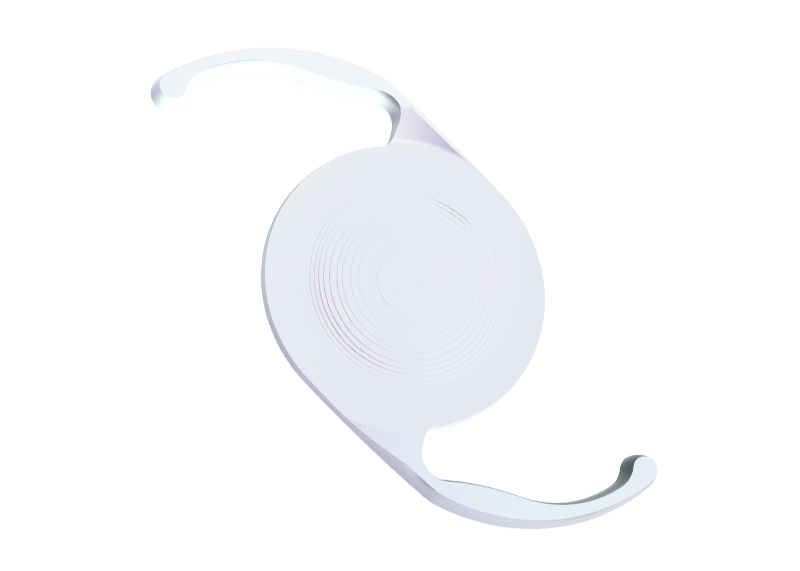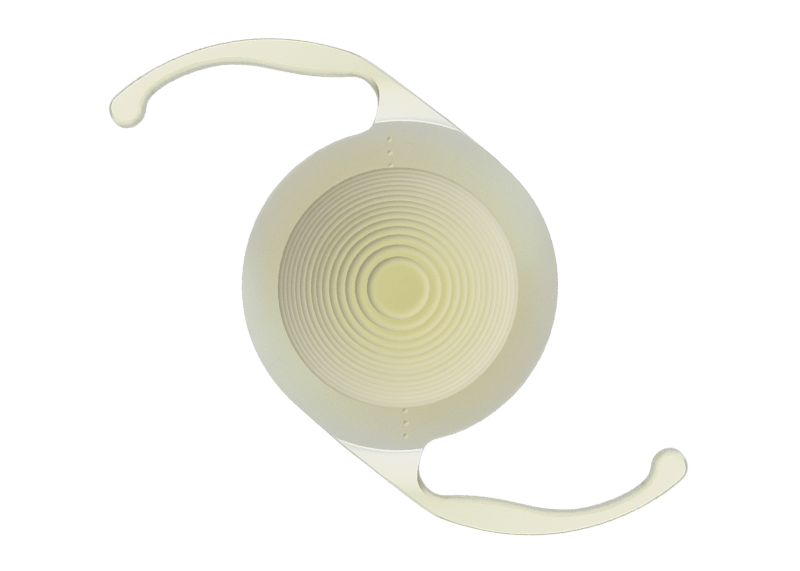What is a Cataract?
A cataract occurs when the natural lens in your eye becomes cloudy and more challenging to
see through. Because of this, you'll slowly notice your vision becoming more impaired over time. Most
people develop cataracts due to aging. But there are other reasons that cataracts develop, like genetics,
trauma, diabetes, being born with them, or due to other medical conditions.
Those with cataracts may not realize they have them, at least initially. However, as a cataract grows, matures, and develops, it will take over more of your natural lens. Cataracts can affect one or both of your eyes. As your natural lens becomes cloudier, it will obstruct light and its ability to pass through. When light cannot pass through the natural lens, you'll no longer be able to see clearly.
One of the most common complaints associated with having cataracts is blurry or distorted vision. Many cataract patients say it feels like looking at the world through a dirty or murky window.
Take Cataract Self-Test
How Do You Know If You Have Cataracts?
As a cataract starts developing, you may begin noticing frustrating signs like:
The above are only some of the signs of cataracts. If you think you could have a cataract, take the next step by requesting an appointment with your eye doctor at North Park Ophthalmology.
What is an IOL?
An IOL refers to an intraocular lens, an artificial lens implanted in your eye during cataract surgery. Intraocular lenses are used to replace your natural lens. When you have a cataract, the natural lens becomes too cloudy to see clearly through anymore. But an IOL lets you see clearly again once your cataracts are removed.
There are several kinds of IOLs available. Depending on the IOL you choose, you may achieve better vision than before cataracts affected your ability to see clearly.
The IOL you choose depends on a few factors. These include your visual needs, lifestyle goals, and budgetary needs after cataract surgery. If you're considering a premium IOL, these are paid for out of pocket. However, remember that premium IOLs provide patients with excellent vision and help reduce your dependence on visual aids.
Many patients find they are worth the investment because they significantly improve their quality of life. Your North Park Ophthalmology eye doctor will review our available IOLs and make the best recommendation based on your needs.
Request Appointment
What is
Dropless Cataract Surgery?
North Park Ophthalmology is always at the forefront of providing our patients with the latest surgical advancements for eye conditions. That's why we offer dropless cataract surgery. Dropless cataract surgery is a one-time dose of antibiotics and steroids that eliminates the need for daily drops after having cataract surgery. A daily eye drop regimen after cataract surgery can take a lot of organizing to make sure you're taking all your drops at the correct time.
But by having dropless cataract surgery, you won't have to worry about if you comply with your required drop regimen. Instead, your cataract surgeon will inject medication inside your eye using a needle to numb your eye and relax the muscles in your pupil. Look forward to a quicker and less stressful recovery after cataract surgery when you choose dropless cataract surgery at North Park Ophthalmology.

The Benefits of
Dropless Cataract Surgery
Choosing dropless cataract surgery also means further benefits during your recovery from the procedure. Instead of struggling to space out when you'll take your eye drops, any need for medicating and lubricating eye drops (beyond non-prescription) is removed. Your eyes will feel more comfortable, meaning they are less irritated. You can experience more of the benefits of having your cataracts removed without redness and stinging that's often accompanied by eye drops to reduce inflammation and prevent infection.
Dropless cataract surgery also reduces potential side effects that can be brought on by using the powerful eye drops used during recovery from cataract surgery. Post-surgery eye drops can increase your risk of spikes in intraocular pressure, although rare. Together, these benefits mean faster healing and earlier visual improvement while knowing that you're still receiving the safety and efficacy that comes with undergoing a modern and advanced procedure like cataract surgery.
Request Appointment
Can You Have
Cataracts Twice?
No, you cannot have cataracts again after having cataract surgery. However, a secondary cataract can occur with virtually identical symptoms. If you notice blurry vision after cataract surgery, you may need a YAG laser capsulotomy. A YAG laser capsulotomy is a simple, in-office procedure performed at North Park Ophthalmology that helps clear blurry vision and ensures you'll see clearly after removing your cataracts.
Learn more about cataracts and if it may be time for cataract surgery by requesting an appointment at North Park Ophthalmology in Pittsburgh, PA, today!
Request Appointment






